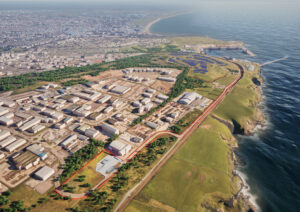A ‘greener’ solution to diesel emissions
VIEWPOINT: Chris Hamer, chemistry partner at intellectual property firm Mathys & Squire, discusses the impact that lowering diesel emissions will have on London and how technology can provide a solution.
The London Mayor has announced ambitious plans to make London’s transport system zero emissions by 2050, a shift away from polluting vehicles being key part of the strategy to make London a greener, healthier city to live in. As part of his strategy, Sadiq Khan has introduced an additional £10 pollution charge on the most polluting of vehicles as of October and has called on the government to incentivise a diesel scrappage scheme.

Chris Hamer, Mathys & Squire
Environmentalists, and others, believe that these schemes should be rolled out nationwide to protect other areas from the same level of pollution. But where will this leave the UK’s car manufacturing industry, and indeed those car owners who may be captured by such schemes?
Despite fears in the industry regarding the weak pound and what Brexit will entail, the UK car industry remains the country’s largest manufacturing export sector with a national supply chain and a presence in every UK region. The government is being urged to boost funding for the UK manufacturing industry to ensure that companies remain in the UK despite its exit from the European Union.
There is no getting away from the fact that for the economy the country needs to keep these big manufacturers within the UK. If they leave, the financial repercussions and job losses will be disastrous.
However, the rolling out of new and more efficient vehicles across commercial and domestic transport will take time, not least due to the amounts of capital needed to fund replacements.
Solutions
So, what is one of the solutions in the meantime? – Funding green technology to reduce diesel emissions.
The United Kingdom is indisputably a country of technological innovation. The solutions needed to ‘clean up’ the toxic air, already exist locally and the government should engage with local businesses to source technologies capable of minimising the number of harmful by-products being pumped out. One example is reducing the amounts of harmful exhaust particulates from diesel engines using green solvent, dimethyl carbonate (DMC), which is non-toxic, VOC exempt (already approved for commercial use), biodegradable and environmentally friendly.
Green Lizard Technologies, a client of intellectual property firm, Mathys & Squire has recently launched an innovative new process which uses DMC to eliminate 80 to 90% of exhaust particulates from conventional diesel engines without the need to modify the engine. DMC itself is a well-known solvent and has been approved for use in Europe for a number of years already. Its use in diesel engines would help eliminate health issues associated with diesel engine fumes. The patent of the technology and chemical compounds in this ground-breaking process will solve one of London, and indeed the UK’s key challenges without a need for changing engines.
While Sadiq Khan quite rightly has big plans for the capital’s air quality, we can only hope that the current government does the right thing to safeguard the strength of the UK’s manufacturing industry. Investing today can only lead to a healthy more prosperous economy in the future.
















